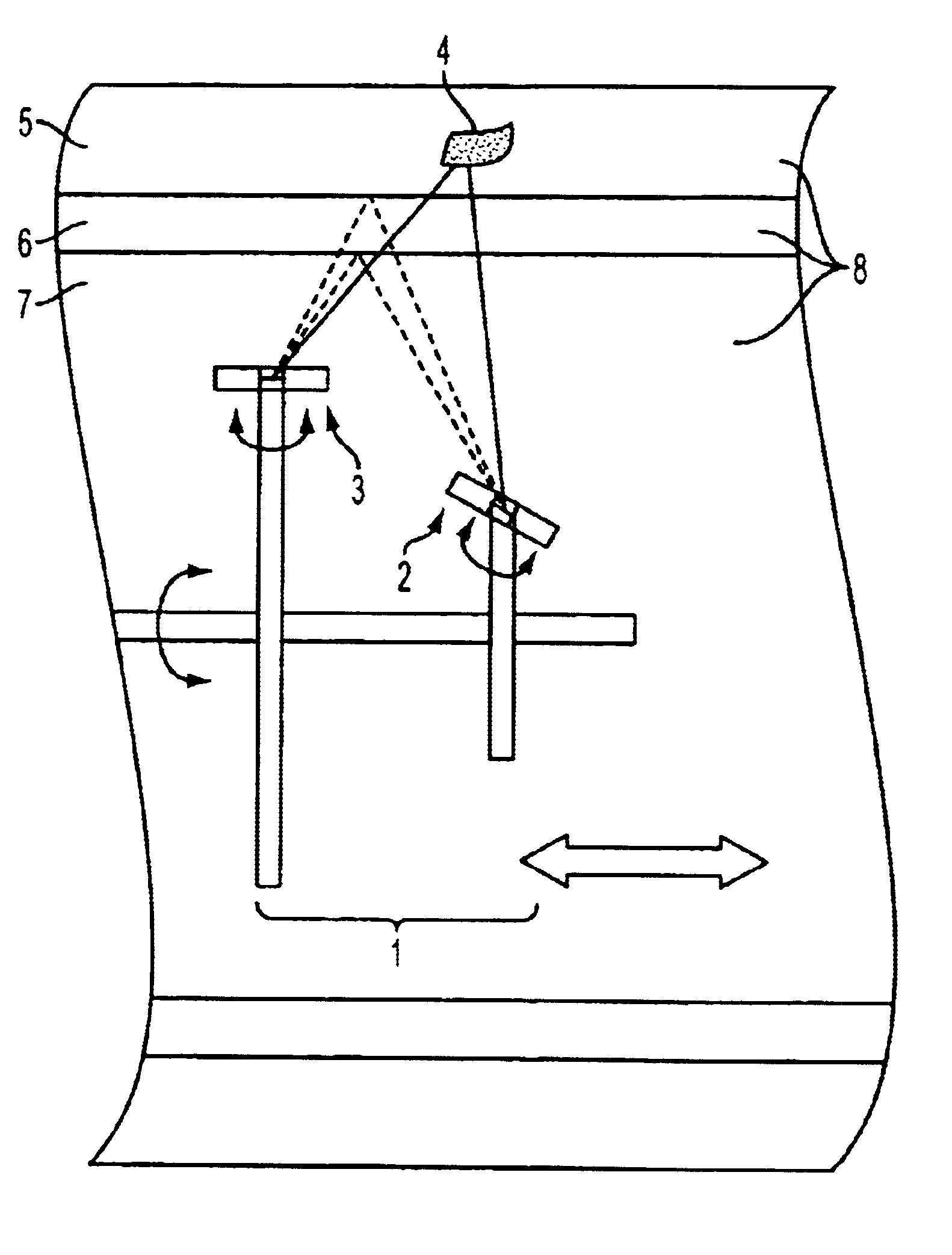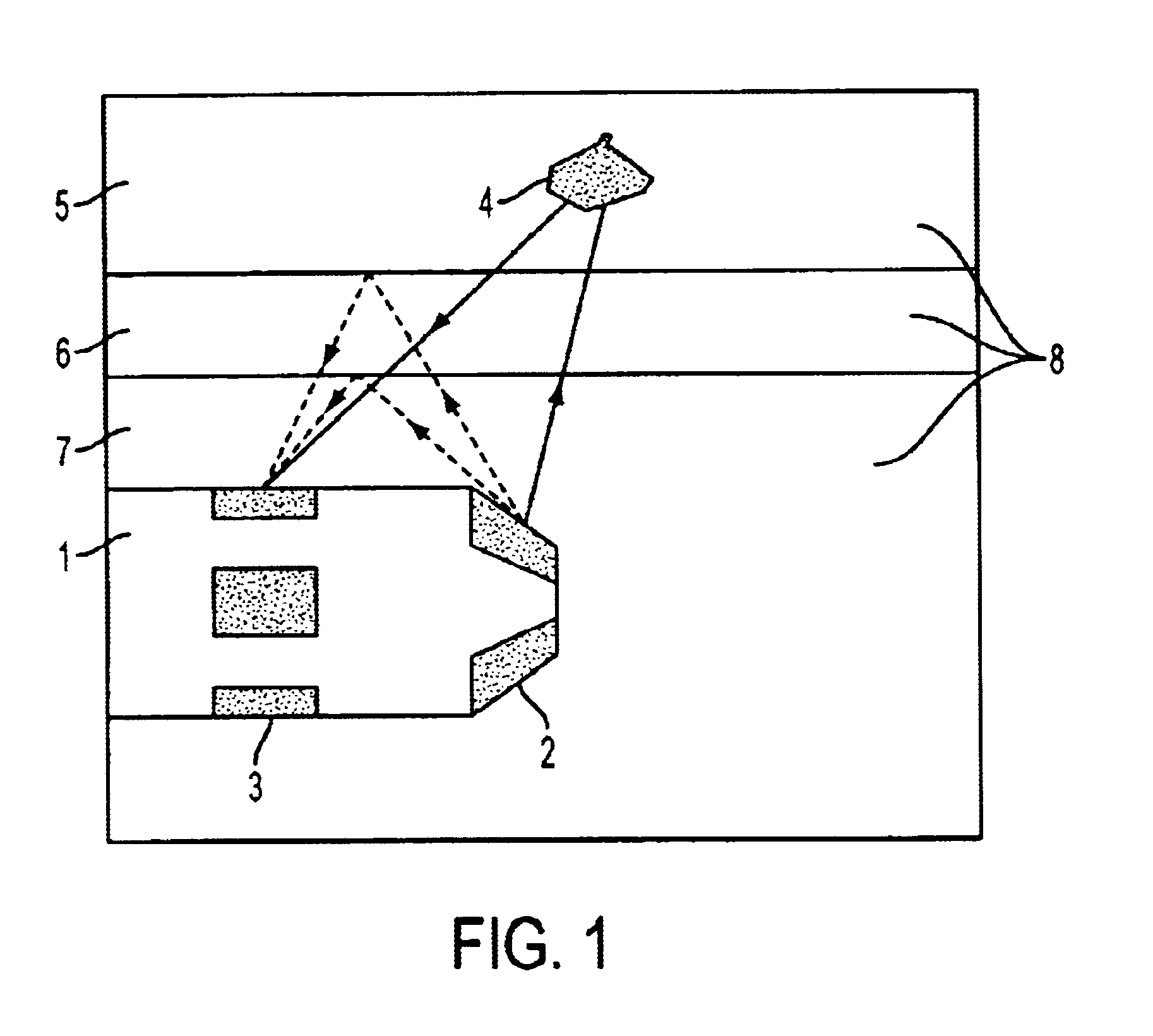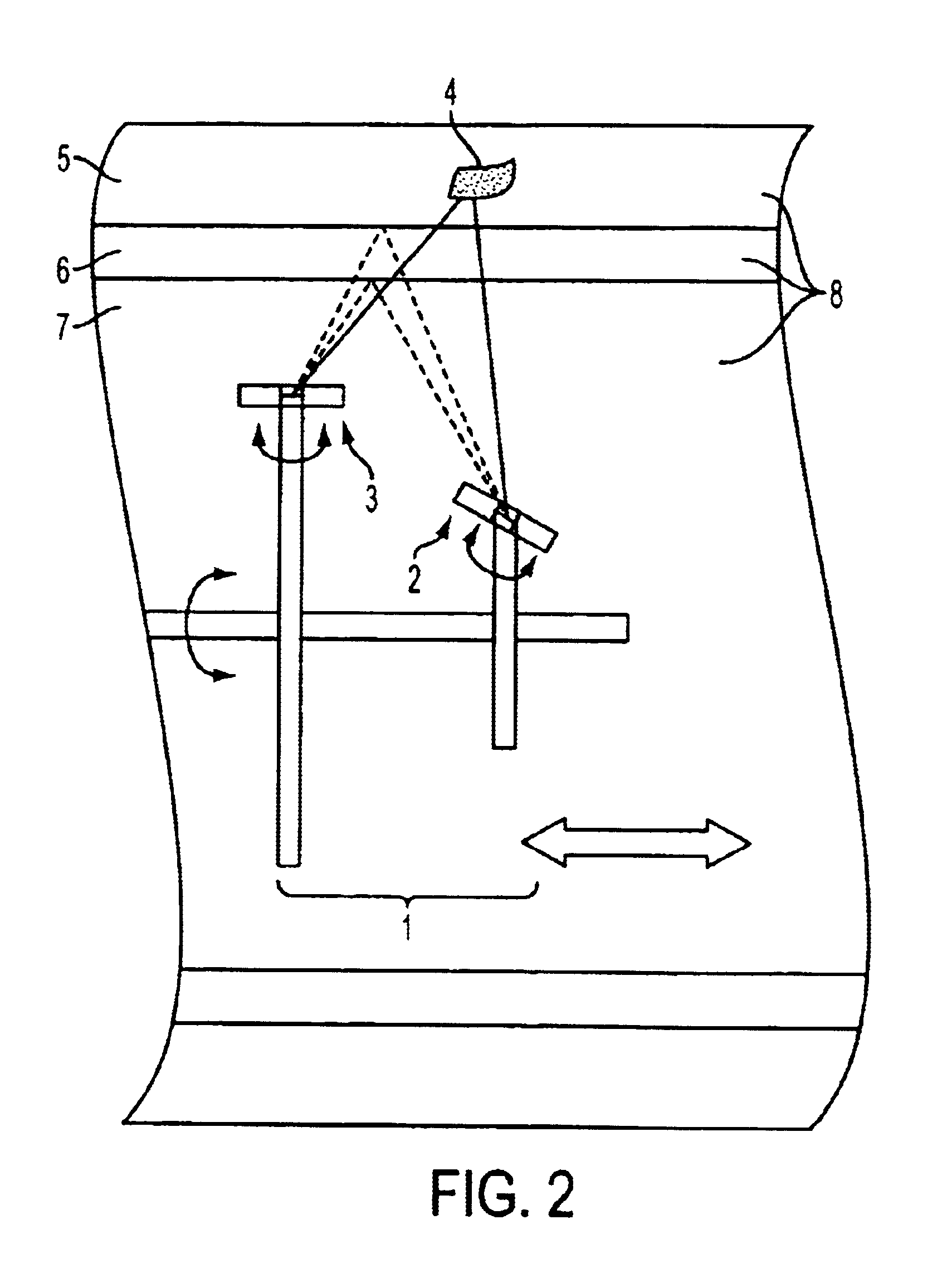Method for retrieving predetermined locations in sewer and pipeline systems
a technology for sewers and pipelines, applied in the direction of pipes, instruments, mechanical equipment, etc., can solve the problems of inaccurate boring, false values, inaccurate robots, etc., and achieve the effect of great reliability and accuracy
- Summary
- Abstract
- Description
- Claims
- Application Information
AI Technical Summary
Benefits of technology
Problems solved by technology
Method used
Image
Examples
Embodiment Construction
The object is solved using a method according to claim 1. Advantageous embodiments of the method are the subject matter of the subclaims.
In the present method, a carrier vehicle having a microwave sensor is employed, which emits microwave signals and receives backscattered microwave signals, for example a microwave backscatter sensor (MRS), as is known from DE 4340059 C2 for use for the inspection of sewer and pipeline systems. However, of course, any other microwave sensor can be utilized. In the present application, carrier vehicle refers to any type of transport means in sewer or pipeline systems, for instance also pneumatic-based pipe worms.
First, prior to the application or the deposition of a layer of material, a first run of the carrier vehicle inside the sewer or pipeline system is conducted in which the sought locations are detected by means of an imaging system, with a first temporal signal profile of the backscattered microwave signals, preferably amplitude and relative p...
PUM
 Login to View More
Login to View More Abstract
Description
Claims
Application Information
 Login to View More
Login to View More - R&D
- Intellectual Property
- Life Sciences
- Materials
- Tech Scout
- Unparalleled Data Quality
- Higher Quality Content
- 60% Fewer Hallucinations
Browse by: Latest US Patents, China's latest patents, Technical Efficacy Thesaurus, Application Domain, Technology Topic, Popular Technical Reports.
© 2025 PatSnap. All rights reserved.Legal|Privacy policy|Modern Slavery Act Transparency Statement|Sitemap|About US| Contact US: help@patsnap.com



